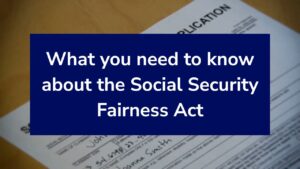Filing taxes is a responsibility that every taxpayer in the U.S. must fulfill annually. While the official tax deadline is usually around mid-April, many taxpayers choose to file early for various reasons. But is filing early always the best choice? Let’s explore the advantages and disadvantages of filing taxes ahead of time.
Pros of Filing Taxes Early
Faster Tax Refunds
One of the biggest benefits of filing taxes early is the possibility of receiving your refund sooner. The IRS typically processes early-filed returns more quickly, which means you won’t have to wait long to get your money. This is especially beneficial if you have plans to use your tax refund for savings, paying off debt, or making a major purchase.
More Time to Fix Errors
Filing early gives you extra time to identify and correct any mistakes in your tax return. If you need to amend your tax return due to missing information or incorrect calculations, filing early ensures you have plenty of time before the deadline to make necessary adjustments.
Reduces the Risk of Identity Theft
Tax-related identity theft is a growing concern, with fraudsters filing false returns using stolen Social Security numbers. By filing early, you reduce the chances of someone else filing a fraudulent return in your name. Once your legitimate return is processed, it becomes much harder for scammers to file a fake one.
Avoiding Last-Minute Stress
Filing taxes can be overwhelming, especially if you wait until the last minute. By filing early, you avoid the rush and give yourself ample time to gather necessary documents, review deductions, and ensure accuracy. This reduces stress and helps prevent errors that can occur when rushing to meet the deadline.
More Time for Payment Planning
If you owe taxes, filing early helps you understand exactly how much you need to pay. While taxes aren’t due until the April deadline, knowing your tax bill early allows you to plan ahead and set aside funds to cover what you owe. This can prevent financial strain and help you avoid penalties for late payments.
Better Access to Tax Professionals
Many taxpayers rely on accountants or tax professionals to file their returns. However, as the deadline approaches, tax professionals get busier and may have limited availability. Filing early ensures that you can get the help you need without facing scheduling issues.
Cons of Filing Taxes Early
Possibility of Missing Important Tax Documents
If you file too early, you may not have all the necessary tax documents, such as W-2s, 1099s, or investment income statements. Filing without these documents can result in inaccurate tax returns, leading to IRS notices, delays, or the need to file an amendment.
Delayed Processing for Certain Tax Credits
The IRS may delay processing early-filed returns that claim certain tax credits, such as the Earned Income Tax Credit (EITC) or the Additional Child Tax Credit (ACTC). This means even if you file early, your refund may not be issued until the IRS processes these credits, usually in mid-to-late February.

Risk of Filing Without Updated Tax Laws
Tax laws can change from year to year, sometimes even at the last minute. If you file too early, you may not be aware of new deductions, credits, or changes in tax rates that could impact your return. Waiting a bit longer allows you to take advantage of updated tax benefits.
Lack of Flexibility for Financial Changes
Filing early locks in your financial situation as it stands at that moment. If you receive an unexpected tax document later or realize you qualify for additional deductions, you may need to file an amended return. This can be a hassle and may take extra time to process.
Potential for Increased IRS Scrutiny
While there’s no official rule that filing early increases your chances of an IRS audit, some experts believe that early filers—especially those claiming large deductions or credits—may be subject to additional scrutiny. If you rush through your return and make errors, it could increase the likelihood of an audit.
Should You File Taxes Early?
Filing taxes early can be a smart financial move, especially if you’re expecting a refund, want to reduce stress, or need time to plan for a tax bill. However, if you’re waiting on tax documents, expect major financial changes, or want to ensure you maximize deductions based on the latest tax laws, it may be better to wait.
Final Thoughts
Ultimately, the decision to file early depends on your personal financial situation. Weigh the pros and cons, ensure you have all necessary documents, and consider consulting a tax professional if you’re unsure. By taking a strategic approach, you can make the best decision for your financial health and tax obligations.
Would you like this article to be expanded further or tailored for a specific audience?





